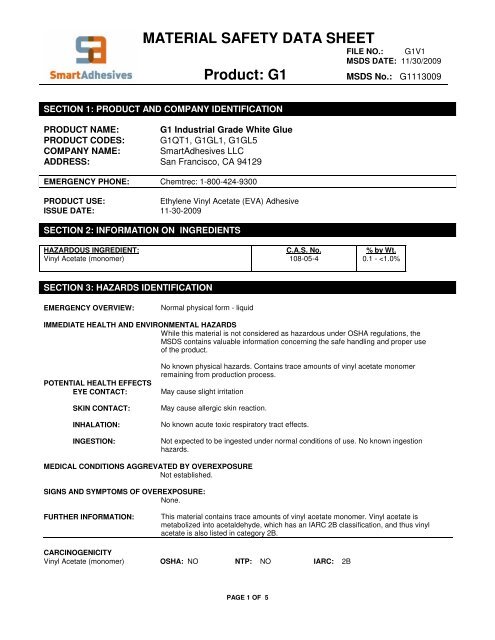Ethylene vinyl acetate is a plastic made by combining ethylene and vinyl acetate.
Ethylene vinyl acetate health effects.
Inhalation does not pose a threat unless you actually work in a processing plant.
The united states department of health amp.
The following are a few examples of safer teethers made from eva.
Personal protective equipment eyes.
The university warns that research is inconclusive on the safety of this chemical but reports that some potential exists for numerous health risks related to bpa exposure.
Among the health effects of phthalates found in many pvc products are premature birth delivery early puberty in girls impaired sperm quality and sperm damage in men genital defects and reduced testosterone production in boys.
Human services warns that the most risk involves children and infants who are more susceptible to trace amounts of any type of chemical 1.
As of 2014 eva has not been found to be carcinogenic by the ntp acgih iarc or osha and has no known adverse effect on human health.
Green sprouts teethers and toys.
We developed an ethylene vinyl acetate eva containing surface pre reacted glass ionomer s prg filler as a new mouthguard material for preventing intraoral bacterial infection.
Polyethylene vinyl acetate has recently become a popular alternative to polyvinyl chloride because it does not contain chlorine.
It s very soft and elastic and it can be made into a plastic that s like rubber yet extremely tough.
Like many plastics it is difficult to biodegrade.
It s considered to be a safe alternative to pvc.
Products with this ingredient organ system toxicity non reproductive.
No osha vacated pels are listed for this chemical.
Exposure to high levels around 1 000 ppm of vinyl acetate in air for a couple of weeks caused irritation of the eyes nose throat and lungs of laboratory animals.
We examined its physical properties antimicrobial activity against a major cariogenic bacterium streptococcus mutans and a periodontopathogen porphyromonas gingivalis and its cytotoxicity toward human gingival epithelial cells.
Vinyl acetate at levels around 200 ppm caused irritation to the respiratory tract and nose when it was breathed by rats and mice for up to 2 years.
Ingredients linked to harm to the immune system a class of health problems that manifest as allergic reactions or an impaired capacity to fight disease and repair damaged tissue in the body.
We examined its physical properties antimicrobial activity against a major cariogenic bacterium streptococcus mutans and a periodontopathogen porphyromonas gingivalis and its cytotoxicity toward human gingival epithelial cells.

